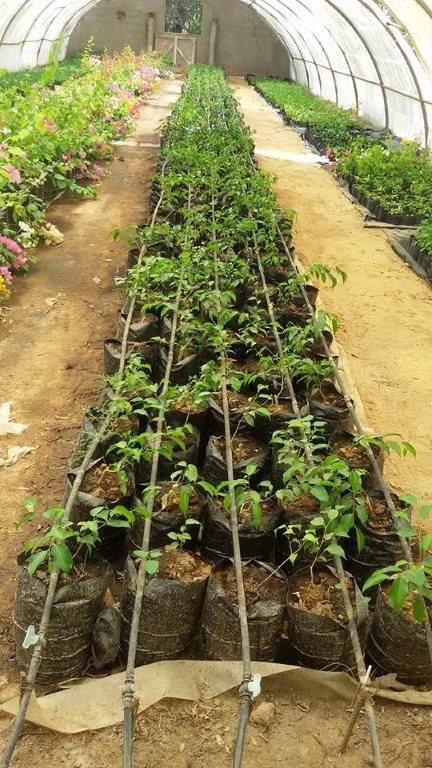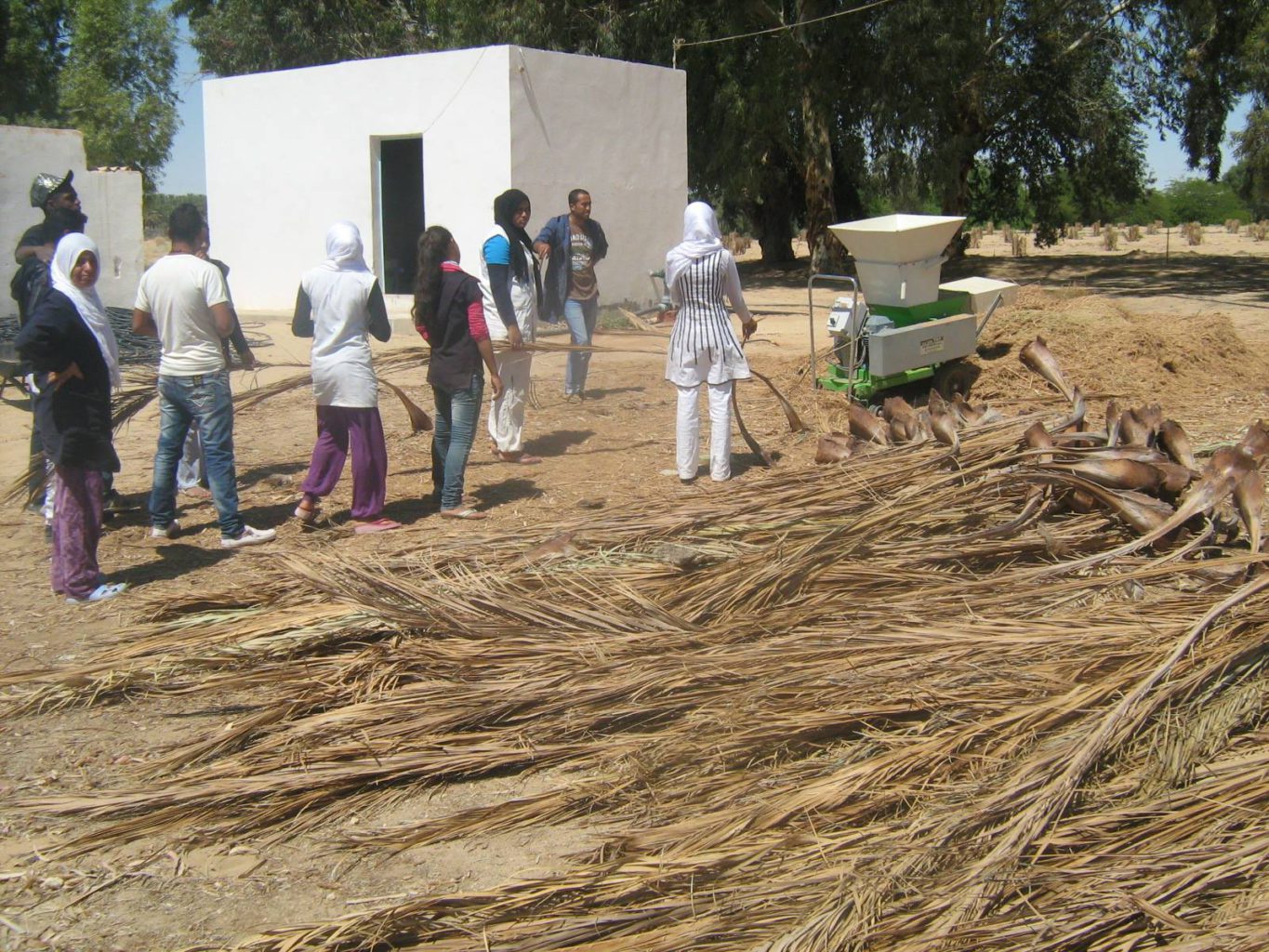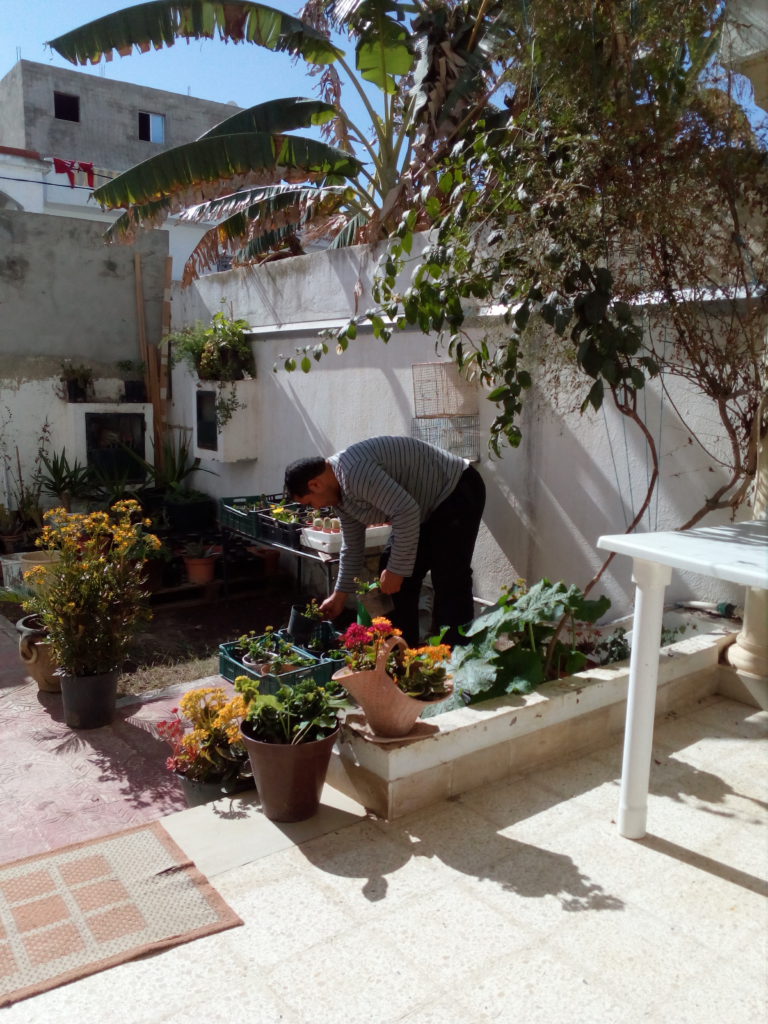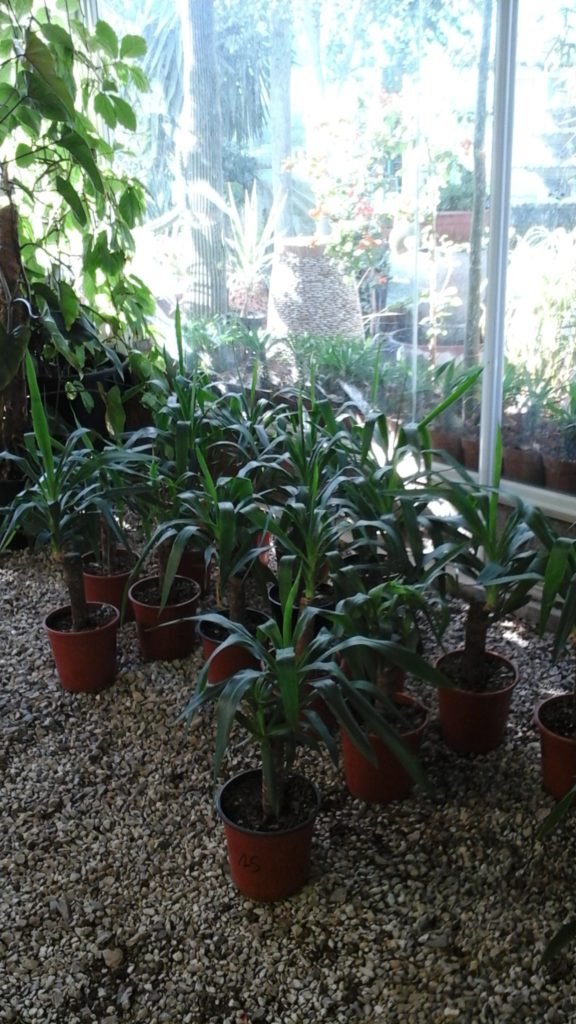In order to prevent an ecological disaster and tackle the problem, Fethi Dkhil, an agri-food engineer, initiated Jinen Nefzawa (the gardens of Nefzawa in Arabic). It aims at transforming palm tree waste into compost that improves soil structure and productivity.
The problem with palm waste:
Nefzawa is located in southwest Tunisia and covers 2.208 million hectares, including 15,300 hectares of oases. And, like most of the North African oases, Nefzawa cannot properly dispose of its palm waste.
Such alarming situation is owing to the excessive waste and absence of waste disposals. That in itself drives farmers to dispose of waste via burning. However, burning waste in an open fire releases toxic chemicals into the air as smoke, and into the soil and groundwater as ashes. It is largely contested for the health risks and negative effects the burning has on the environment.







